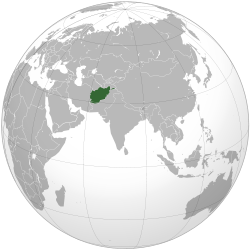Bonn-II: Doomed To Fail – Analysis
By Aryaman Bhatnagar
Exactly a decade since the first Bonn Conference, a second such conference has been held in Bonn to plan for the future of the country following the withdrawal of NATO troops post-2014. The conference, which had representatives from about a hundred countries, aimed at achieving national reconciliation and transfer of Afghan sovereignty along with a commitment for continued international engagement in Afghanistan post-2014. However, the absence of key players like Pakistan and the Taliban along with Afghanistan’s mounting problems are going to prevent any of these goals from being achieved.
Problems for National Reconciliation

An important aspect of the western strategy in Afghanistan has been the attempts at national reconciliation. However, all efforts to initiate peace talks between the Taliban and the Afghan government have failed to materialise. The Taliban claims that it would not negotiate with the government until the “foreign occupation” of the country has come to an end. In light of this, there is no doubt that the exclusion of the Taliban from the Bonn Conference is going to create further obstacles for national reconciliation. The Taliban, which was excluded from the first Bonn Conference as well in 2001, has already declared that Bonn-II would “further ensnare Afghanistan into the flames of occupation”.
Pakistan’s decision to boycott the Bonn Conference following the NATO attacks on two Pakistani posts has raised further doubts about making any progress at Bonn. The extent of Pakistan’s control over the Taliban is debatable but of all other parties Pakistan has far more leverage over them. Ahmed Rashid writing for the BBC argued that the Pakistani military could play an important role in encouraging the Afghan Taliban groups to cooperate with the international efforts at reaching an understanding. Moreover, given its own strategic interests in Afghanistan, Pakistan’s active participation at the conference was necessary for achieving a comprehensive long-term settlement.
The absence of both these keys players from the Second Bonn Conference has, thus, naturally cast a shadow over the possibility of achieving any sort of agreement between the Taliban and the Afghan government.
Problems with International Engagement
The financial support of the international community is required at least for another decade for Afghanistan. It is estimated that the expenditure to maintain a 350,000 strong Afghan Army alone, which is so integral to NATO’s plans of withdrawal from the country would be close to $8 billion. Development projects would cost an additional $5 billion. Moreover, according to a recent World Bank report, the Afghan economy is going to face a severe crisis post-2014. The report states that only external support can help the economy to survive. Thus, Afghanistan’s ability to meet its future security and developmental expenses are largely in the hands of the international community.
The international community has pledged to continue its financial support for Afghanistan. Hilary Clinton stated that “the United States intends to stay the course with our friends in Afghanistan”. However, the ongoing economic crisis in the US and Europe are likely to restrict this financial aid. The western governments are increasingly under domestic pressure to revive their own failing economies at home than to support a government, which is widely perceived to be corrupt and ineffective. The impact of such pressure is already noticeable in the budget cuts of aid organisations like USAid, whose budget has already been slashed by half. Such cuts have raised concerns in Afghanistan that come 2014 most of the aid would disappear.
Apart from the dwindling financial aid, the presence of certain countries in Afghanistan post-2014 can also act as a major problem. For instance, the Iranian Foreign Minister Ali Akbar Salehi reiterated Iran’s opposition to the United States keeping some forces in Afghanistan after 2014. He claimed that attempts of “certain Western countries” to maintain military bases in Afghanistan post-2014 were contradictory to the objective of attaining peace and stability in the country. Tehran has been accused of extending support to the insurgents in Afghanistan with the aim to counterbalance the American presence over there. The continued military engagement of the US can, thus, make the counterinsurgency operations against the Taliban more difficult. Similarly, India’s decision to further its investments in the Afghan economy and military presence in Afghanistan on account of the Indo-Afghan Strategic Agreement are bound to rile up Pakistan.
The Second Bonn Conference, while, offering a lot of promise seems unlikely to be able to deliver on any of them. Financial concerns within the west, tense bilateral relations in the region and the absence of key players from the proceedings are definitely going to act as a major barrier for any significant progress.
Aryaman Bhatnagar
Research Intern
IPCS
